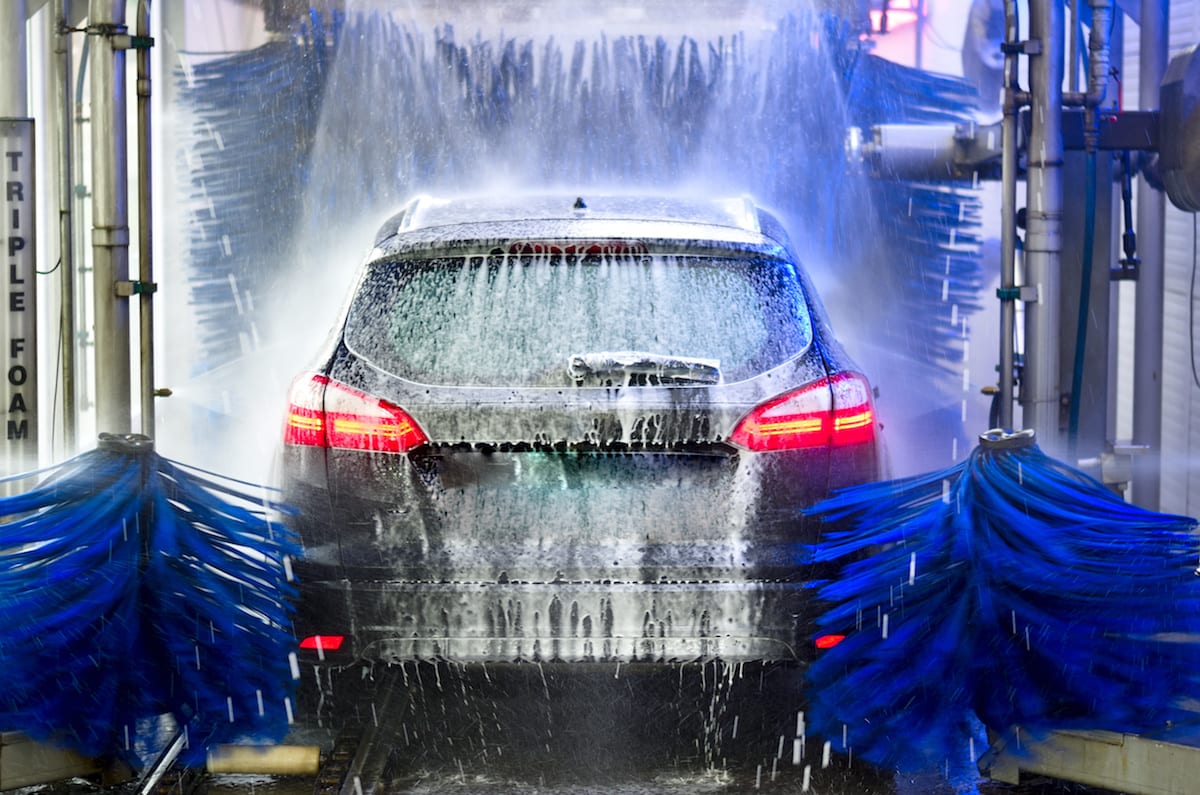By Jordan McDowell
If you want to start a private business that’s strongly driven by consumer demand, owning your own car wash can be a lucrative option. With approximately eight million vehicles washed daily, according to the U.S. Census Bureau, there is certainly plenty of demand. It’s also encouraging to know that 90 percent of car wash facilities are independently owned by people like you.
With the right amount of business smarts and perseverance, owning a car wash can be a profitable endeavor. But how do you get the ball rolling? It takes more than the right location and offering top-notch service to draw customers away from other washes.
In addition to service quality, what most divides car washes is the type of equipment they use. Being successful requires choosing the right automatic and self-service wash equipment. Here are five tips to help you do it.
1. Choose Equipment Based on the Type of Vehicles You Plan to Service
Start the equipment purchasing process by deciding what vehicles you plan to service. Will your business service consumer vehicles, commercial vehicles, or both? If you plan to service commercial vehicles, then what kind(s) will you focus on?
Making the determination will go a long way in helping you decide which equipment to invest in. Having equipment that flawlessly serves your target market is essential for a strong opening day and continued success.
2. Consider How Many Employees You Really Need at the Business Site
Once you determine your target vehicles, it’s time to consider the human resources that are needed to run the equipment that does the cleaning. As a new car wash, your starting point for human labor should be finding employees to fill point-of-contact customer service positions. But they may be the only employees you need to hire.
Unless you are starting a facility that relies on workers to hand dry vehicles and render detailing services, the manpower needed for the wash and dry processes will be largely determined by the equipment you purchase.
For the sake of expense management, you can reverse the situation, and look at how much manpower you can afford, and use that number to inform your equipment purchases. When calculating the cost of labor, remember to consider any and all benefits you plan to offer employees — from free snacks at the worksite to health insurance — in addition to wages.
3. Consider Adding More Equipment to Capture More Revenue Streams
To attract a high number of customers, consider diversifying the types of customers you serve. For example, you could add automatic bus washing equipment that services school buses and buses for public transit. However, to minimize startup cost, it may be wisest to purchase this equipment after you show a profit from serving consumers, if they will be your primary market.
On the other hand, if you explore your market and find an exceptional opportunity exists for bus washing (this is often the case in large cities), you may want bus washing to be a part of your business model from the beginning. Learning what type of transit wash systems your competitors use can help you determine market gaps that certain types of wash equipment will help you take advantage of.
4. Evaluate How Much It Will Cost to Maintain the Washing Equipment
Before deciding which equipment is best, it’s important to research all of the maintenance costs involved. Some manufacturers offer a multi-month warranty period that provides coverage for scheduled maintenance. However, once that period expires, paying the manufacturer to perform maintenance is often far costlier than having a qualified third party do the work. Third party maintenance is also generally more economical that employing your own service technicians.
5. Consider Whether Renting or Buying is Currently Most Economical
Depending on your long-term business plans, it may be more financially feasible to rent equipment instead of buying it outright. If you rent equipment, the legal owner may be responsible for maintaining it, which can save you quite a bit of money when it comes to maintaining complex, automated equipment. Renting equipment is also ideal if you want to test different technologies to see which work best for the services you plan to offer. Think of it as A/B testing, car wash style!
Conclusion
If you plan to go into private business ownership, operating a car wash can be a truly lucrative opportunity. Before you start investing, though, take time to research the types and technologies of automatic and self-service wash equipment you can use. It will help you determine which equipment options are right for your business financially, as well as help you decide which areas of your market you can pursue to grow the healthiest bottom line.

